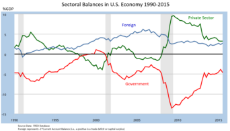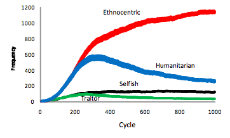Today, Sunday, March 11, at 6 P.M. EST there will be a debate between Matt Heimbach and Jared Howe on National Socialism versus Libertarianism, hosted by the Goyfellas on Mad American Network.
https://www.youtube.com/watch?v=J5-VsJ_h-0M
While it may seem insignificant in terms of viewer count, it is indicative of the rift in the alt-right between the National Socialists and the Paleo-Libertarians, who disagree on virtually every matter pertaining to economics and political structure. If the alt-right is to ever achieve unity in these respects it must choose between one or the other. Will it return to the policies of Hitler or adopt a more voluntaryist bent?
Thoughts?
/mlpol/ - My Little Politics
Archived thread
1520721811.jpg (112.1 KB, 937x718, AryanneAndLeslieFaireArguing.jpg)

>>127039
It will be interesting, as the Libertarian v. natsoc arguments do not happen that often. I for one welcome this debate. However, to ensure this thread does not break the no e-celeb rule, and is not just shilling a particular video, lets expand this thread to include discussion on the debate topic itself.
To that end, I say that a libertarian nation is superior to a Natsoc nation in therms of economic prosperity. History has shown that top down management of the economy always ends up in economic hardship and eventual total implosion.
It will be interesting, as the Libertarian v. natsoc arguments do not happen that often. I for one welcome this debate. However, to ensure this thread does not break the no e-celeb rule, and is not just shilling a particular video, lets expand this thread to include discussion on the debate topic itself.
To that end, I say that a libertarian nation is superior to a Natsoc nation in therms of economic prosperity. History has shown that top down management of the economy always ends up in economic hardship and eventual total implosion.
I don't anything about Heimbach. I know about Howe though, he's basically like Chris Cantwell, right?
>>127043
I support libertarianism from an ethical and economic standpoint, and my "alt-right" tendencies, for lack of a better term, are rooted in my understanding of what must be done to reach and maintain a stateless society. Hoppe was definitley right when he said the so-called "alt-right" is much more defined by what they oppose then what they support.
>>127043
I support libertarianism from an ethical and economic standpoint, and my "alt-right" tendencies, for lack of a better term, are rooted in my understanding of what must be done to reach and maintain a stateless society. Hoppe was definitley right when he said the so-called "alt-right" is much more defined by what they oppose then what they support.
>>127043
>>127054
I personally believe a nationalist government can result in greater overall prosperity for all of its citizens. If there is a need for jobs, the government can create them. Whatever money the government earns through nationalized industries can not only be put towards improving those very industries, but can also be put towards improving the quality of life of its citizens. And nationalization doesn't necessarily mean micromanagement, which I will agree is a very inefficient and economically ruinous way to run a company.
>>127054
I personally believe a nationalist government can result in greater overall prosperity for all of its citizens. If there is a need for jobs, the government can create them. Whatever money the government earns through nationalized industries can not only be put towards improving those very industries, but can also be put towards improving the quality of life of its citizens. And nationalization doesn't necessarily mean micromanagement, which I will agree is a very inefficient and economically ruinous way to run a company.
>>127056
>Government creating jobs
Employment isn't an end in itself. Labor is a mean to produce value. If you pay people to dig and then fill ditches, or make construction workers dig with shovels instead of bulldozers, you aren't accomplishing anything, and resources are simply wasted. I reccommend you read Bastiat.
>Government creating jobs
Employment isn't an end in itself. Labor is a mean to produce value. If you pay people to dig and then fill ditches, or make construction workers dig with shovels instead of bulldozers, you aren't accomplishing anything, and resources are simply wasted. I reccommend you read Bastiat.
>>127058
Your comparisons don't make sense. Employment isn't the end. The idea isn't just to have employment, it's to cut down on unemployment. To get beggars off the streets and turn them into hard working citizens by giving them the chance to earn their living. The number one cause of poverty is unemployment. Get rid of unemployment, and the issue basically solves itself.
Your comparisons don't make sense. Employment isn't the end. The idea isn't just to have employment, it's to cut down on unemployment. To get beggars off the streets and turn them into hard working citizens by giving them the chance to earn their living. The number one cause of poverty is unemployment. Get rid of unemployment, and the issue basically solves itself.
>>127062
Alright, I guess I accidentally misinterpreted what you were saying. Still, I think freeing the market would be a better long term solution.
Alright, I guess I accidentally misinterpreted what you were saying. Still, I think freeing the market would be a better long term solution.
>>127056
>If there is a need for jobs, the government can create them
If there is a need for jobs to be done then private sector will employ people to do those tasks.
There is a need for X, company that creates X employs lots of people to create more X to meet the demand for it.
If you want a lower level of unemployment in the country just lower the regulations on companies, they employ more people. Less people selling their time (looking for a job) makes the market value of working time increase.
Both are supply and demand, nothing has a 'true value' just what rate people are currently willing to sell at and buy at. If consumers want lots of cheese the price of it will go up because of shortage, the high price makes people want to sell more cheese they therefore make more, more cheese being made brings the price down. The free market finds it's level.
As long as there are more than one buyer and more than one seller available and as few restrictions as possible the "correct" price will be found.
Employment is just the same but the business is the buyer, lots of people selling their time means the wage offered will go down and go up if there are few people wanting the job. If you want a job where you play games and drink you can expect a low wage since so many others want to do it too on the other hand the wage of working on a oil rig goes up thanks to so few people wanting to do the job itself.
>If there is a need for jobs, the government can create them
If there is a need for jobs to be done then private sector will employ people to do those tasks.
There is a need for X, company that creates X employs lots of people to create more X to meet the demand for it.
If you want a lower level of unemployment in the country just lower the regulations on companies, they employ more people. Less people selling their time (looking for a job) makes the market value of working time increase.
Both are supply and demand, nothing has a 'true value' just what rate people are currently willing to sell at and buy at. If consumers want lots of cheese the price of it will go up because of shortage, the high price makes people want to sell more cheese they therefore make more, more cheese being made brings the price down. The free market finds it's level.
As long as there are more than one buyer and more than one seller available and as few restrictions as possible the "correct" price will be found.
Employment is just the same but the business is the buyer, lots of people selling their time means the wage offered will go down and go up if there are few people wanting the job. If you want a job where you play games and drink you can expect a low wage since so many others want to do it too on the other hand the wage of working on a oil rig goes up thanks to so few people wanting to do the job itself.
>>127069
Ah, regulations: a whole different can of worms. I'll try not to open that one just yet.
I will say this: if the government can follow its own regulations it sets itself and still create jobs, then what would be the purpose of then cutting regulations for companies for the chance that they might hire some more workers?
Ah, regulations: a whole different can of worms. I'll try not to open that one just yet.
I will say this: if the government can follow its own regulations it sets itself and still create jobs, then what would be the purpose of then cutting regulations for companies for the chance that they might hire some more workers?
>>127056
>f there is a need for jobs, the government can create them. Whatever money the government earns through nationalized industries can not only be put towards improving those very industries, but can also be put towards improving the quality of life of its citizens.
The free market literally does the same thing but more efficiently. If there is a need for water in a free market nation I can open up a water store and hire people. I will hire the best candidates for the job to help my bottom line, and ensure quality water delivery to the people. This improves the overall quality of life for everyone. If the government wishes to do the same there would be layers of regulation that would take time, and have a chance of favoring nepotism over ability.
>f there is a need for jobs, the government can create them. Whatever money the government earns through nationalized industries can not only be put towards improving those very industries, but can also be put towards improving the quality of life of its citizens.
The free market literally does the same thing but more efficiently. If there is a need for water in a free market nation I can open up a water store and hire people. I will hire the best candidates for the job to help my bottom line, and ensure quality water delivery to the people. This improves the overall quality of life for everyone. If the government wishes to do the same there would be layers of regulation that would take time, and have a chance of favoring nepotism over ability.
I'm still not quite sure where exactly I fall on this spectrum myself. I'm generally more inclined towards a libertarian view, and specifically am quite adamant that there should never be any sort of forced redistribution of wealth, that the state should be severely limited in how much land it can own and for what purpose it can be used, that taxation should be minimal or non-existant, and that in general businesses should be as unrestricted as is reasonable. However I do think a state of some kind needs to exist, particularly to serve as an interface for the nation to deal with the world at large. I think borders should exist and be strictly enforced, and that the state should have the right to keep out undesirables and provide for a national defense. While I think that the state should have little say in how private citizens conduct business with each other, I do think that any business transacted across national borders should be regulated, and that the state should have the ability to block international transactions that go against the national interest. Industries that involve credit or finance should be particularly watched. The state should not own domestic resources like coal or oil, but it should have the right to regulate what comes into and goes out of the country. For instance, if a private entity wanted to sell a bunch of our uranium reserves to Russia, that's the sort of thing the government could and should put a stop to.
As far as public morality and regulation of people's private lives I take a similar position, that people should in general be permitted to live as they please, but that some sort of standard exist that defines what is normal and acceptable. People who live outside the norms should do so discreetly and should respect the norms and standards of the community they live in, and if they can't manage to do that then they should find somewhere else to live. Communities should be largely at liberty to set these sorts of agreements on their own with ideally little involvement from the state; however the state should have the ability to regulate things like marriages, adoptions, child custody, etc. I also tend to be a believer in Hoppe's ideas about necessary physical removal of Marxists and other political agitators whose ideas go against the good of the nation. I don't care for the idea of restricted speech and want to avoid it whenever possible, but I think it's been pretty effectively demonstrated that if you give Marxists/Jews/SJWs/etc. the right to say and do as they please, they will eventually make you regret doing so. It's probably better to just remove such individuals from the nation before they can become a major problem. I think it makes the most sense to handle this at a national level and give the state the power to deport individuals who cause too much trouble. Sort of like this board: it's more or less open to anyone who wants to use it, you can pretty much say and do as you please while you're here, however mods have the right to ban you if you insist on abusing the system and/or being a huge faggot.
As far as public morality and regulation of people's private lives I take a similar position, that people should in general be permitted to live as they please, but that some sort of standard exist that defines what is normal and acceptable. People who live outside the norms should do so discreetly and should respect the norms and standards of the community they live in, and if they can't manage to do that then they should find somewhere else to live. Communities should be largely at liberty to set these sorts of agreements on their own with ideally little involvement from the state; however the state should have the ability to regulate things like marriages, adoptions, child custody, etc. I also tend to be a believer in Hoppe's ideas about necessary physical removal of Marxists and other political agitators whose ideas go against the good of the nation. I don't care for the idea of restricted speech and want to avoid it whenever possible, but I think it's been pretty effectively demonstrated that if you give Marxists/Jews/SJWs/etc. the right to say and do as they please, they will eventually make you regret doing so. It's probably better to just remove such individuals from the nation before they can become a major problem. I think it makes the most sense to handle this at a national level and give the state the power to deport individuals who cause too much trouble. Sort of like this board: it's more or less open to anyone who wants to use it, you can pretty much say and do as you please while you're here, however mods have the right to ban you if you insist on abusing the system and/or being a huge faggot.
If something needs to be improved the private sector will improve it and will do so in the most efficient way.
If a road is needed you justify spending that money by how much it is needed (and will therefor bring more prosperity)
You don't say "We have too much unemployment, lets make more jobs"
You build the road when you need the road not when you want people to stop being idle.
If unemployment being high means the cost of building the road is now lower and now worth building (the value gained from it existing is greater than the cost of building) then yes build the road. But if you have already build all the roads that would be profitable and still have high unemployment then no stop building the roads, the tax payers have pooled their money together for you to buy things that they couldn't organize to buy individually, you are now wasting their money building roads that won't be driven on and keeping the cost of employing someone higher than it should be.
By the way I do think the government should exist mostly for in investing in long term projects which I don't think the private sector will do on it's own, investing in the education of it's people, extra research and development funds, incentivize areas more desirable for the country and a few other small things.
If a road is needed you justify spending that money by how much it is needed (and will therefor bring more prosperity)
You don't say "We have too much unemployment, lets make more jobs"
You build the road when you need the road not when you want people to stop being idle.
If unemployment being high means the cost of building the road is now lower and now worth building (the value gained from it existing is greater than the cost of building) then yes build the road. But if you have already build all the roads that would be profitable and still have high unemployment then no stop building the roads, the tax payers have pooled their money together for you to buy things that they couldn't organize to buy individually, you are now wasting their money building roads that won't be driven on and keeping the cost of employing someone higher than it should be.
By the way I do think the government should exist mostly for in investing in long term projects which I don't think the private sector will do on it's own, investing in the education of it's people, extra research and development funds, incentivize areas more desirable for the country and a few other small things.
>>127078
Then let me put forward the following situation: while you're opening your water store, you need to choose where to get your water from. There's a nearby source that's easy to acquire and is cheap to bottle and sell. However, it's very, very low quality, and while it won't make people too sick, people would be outraged to know where you got it from. You could filter it, but that would take much more effort, and would offset the bonuses of a cheaper water source
At the same time, there's a much farther and much harder to acquire source that's of a considerably higher quality. It'll be costly to get ready for sale, so much so that you'd have to hike the prices up just to break even, but you could boast that you only get your water from the best sources available.
Would you just sell the cheaper water as is, filter the cheap water at an increased cost, or would you sell the high quality water?
>>127080
I wholeheartedly agree with this Anon in particular. I do have to ask though: what is your view on the government designating certain areas as protected, so that no one can make commercial, residential, or industrial use of them?
>>127082
What are you on about, talking about roads? Ancap memes don't solve unemployment.
Then let me put forward the following situation: while you're opening your water store, you need to choose where to get your water from. There's a nearby source that's easy to acquire and is cheap to bottle and sell. However, it's very, very low quality, and while it won't make people too sick, people would be outraged to know where you got it from. You could filter it, but that would take much more effort, and would offset the bonuses of a cheaper water source
At the same time, there's a much farther and much harder to acquire source that's of a considerably higher quality. It'll be costly to get ready for sale, so much so that you'd have to hike the prices up just to break even, but you could boast that you only get your water from the best sources available.
Would you just sell the cheaper water as is, filter the cheap water at an increased cost, or would you sell the high quality water?
>>127080
I wholeheartedly agree with this Anon in particular. I do have to ask though: what is your view on the government designating certain areas as protected, so that no one can make commercial, residential, or industrial use of them?
>>127082
What are you on about, talking about roads? Ancap memes don't solve unemployment.
>>127083
Roads, glass windows, ditches or water the product is irreverent change it to X if you like. Roads is something the government currently makes that is physical so a nice example.
The point is you don't just decide to cut unemployment by making jobs from the government if a job is offered it should be for a position that is required, one that is profitable.
Also I'm not 100% sure that "The number one cause of poverty is unemployment" or that employment offers will turn beggars into hard working citizens. I used to think that as a child though do you have any data or books you've read on the issue?
Roads, glass windows, ditches or water the product is irreverent change it to X if you like. Roads is something the government currently makes that is physical so a nice example.
The point is you don't just decide to cut unemployment by making jobs from the government if a job is offered it should be for a position that is required, one that is profitable.
Also I'm not 100% sure that "The number one cause of poverty is unemployment" or that employment offers will turn beggars into hard working citizens. I used to think that as a child though do you have any data or books you've read on the issue?
>>127083
Not unless we build an AnCap meme factory.
>>127080
If you're curious about libertarianism and anarcho-capitalism, I can refer you some relatively easy reads to set you in the right direction.
>Bastiat - The Law
>Hazlitt - Economics in One Lessom
>de Molinari - The Production of Security
>Rothbard - Anatomy of the State
After that you'll want to read more Rothbard and Hoppe. Particularly, The Ethics of Liberty and Democracy: The God that Failed.
Not unless we build an AnCap meme factory.
>>127080
If you're curious about libertarianism and anarcho-capitalism, I can refer you some relatively easy reads to set you in the right direction.
>Bastiat - The Law
>Hazlitt - Economics in One Lessom
>de Molinari - The Production of Security
>Rothbard - Anatomy of the State
After that you'll want to read more Rothbard and Hoppe. Particularly, The Ethics of Liberty and Democracy: The God that Failed.
>>127083
>what is your view on the government designating certain areas as protected, so that no one can make commercial, residential, or industrial use of them?
I'm a little bit /out/ so on some level I actually support the idea of National Parks, just because I think it's good to have some areas held as nature preserves for people to enjoy, that are guaranteed not to be developed. That said I think the government abuses the privilege and that I have a problem with. The Obama administration was particularly bad about this, randomly designating featureless areas as National Parks just to prevent oil companies from drilling there. As I said I think there should be a limit to how much land the state can own and what they can use it for, so I think anything designated a national park should have to meet some predefined criteria, and there should be a cap on how much land can be held like that.
>what is your view on the government designating certain areas as protected, so that no one can make commercial, residential, or industrial use of them?
I'm a little bit /out/ so on some level I actually support the idea of National Parks, just because I think it's good to have some areas held as nature preserves for people to enjoy, that are guaranteed not to be developed. That said I think the government abuses the privilege and that I have a problem with. The Obama administration was particularly bad about this, randomly designating featureless areas as National Parks just to prevent oil companies from drilling there. As I said I think there should be a limit to how much land the state can own and what they can use it for, so I think anything designated a national park should have to meet some predefined criteria, and there should be a cap on how much land can be held like that.
>>127098
Anatomy of the State is on my reading list but I don't know those other titles, I will look into them. Thank you.
Anatomy of the State is on my reading list but I don't know those other titles, I will look into them. Thank you.
1520771013.png (163.1 KB, 1371x782, Sectoral_Financial_Balances_in_U.S._Economy.png)

I find that a fascist state to be both superior economically and morally. On the latter end especially. Often I find it that libertarians are morally bankrupt to any social issue in the pursuit of market dogmatism. Only from a market fundamentalist's mouth do I hear the call to let homeless die (or rather anybody who fails in the fixed market), the support to kill opposition not even for ideology but on the notion that markets work best without them voicing their opinion, the willingness to weasily co-opt even the most controversial aspects from both left and right (such as when the libertarians intermingled with the New Left much like it is doing now with the alt right), support for degeneracy as choice, and the vapid defence of international finance and usury. I hold the belief that libertarianism is no alternative to globalism, but is actually globalist itself. Any sense of radicalism from them is moot to me. They're more closer to mainstream than any of the fringe, such as with EU's austerity, the trend of Neo-Liberalism, TPP, Transatlantic Trade and Investment Partnership, and both of the mainstream left and right's free trade dogmatism.
On economics, the issue of economics is largely ignored. The arena of politics is dominated either by non-economists and economists working against the majority, or as I'd like to call bad economists. The area of economic study is in shambles, full of mathematical theory unconcerned with reality. Far too long are people governed actually not by old books, but misconceptions of old books works, many cherry picked to front a dogma. Most economic theory are credible as astrology or myth. And, one of the many bad myths is that government deficit is "wasteful" (which doesn't mean anything nor is specified; perhaps lack of labour utilisation?) when empirically government deficits are private surpluses in the economy. Meaning that financial assets are added by government spending. Deficits lead to growth and less reliance on the credit industry. Credit by the way being woefully pushed aside as an non-factor in most economic models. But, this is lauded and rejected on the basis of fictional "fundamentals" whom the creators have openly contested that economics is not based on empirical data, but axioms. Explicitly glorified assumptions. Assumptions that will be repeatedly contradicted, like the old question of "How did our gold get there where there is no mines?"
[YouTube] Eric Reinert (Economist) - Alternative Economics 2_3 The Other Canon (TOC)![]()
The answer was that popular theory at the time was wrong. It improved, but yet we follow bad ones today. Which utilises rhetorical situations such as the broken window fallacy, ditch digging, and lump of labour. Sometimes called the unseen, but what I call the unproven. Thinking like this de-industrialised nations over, while China uses what works. The same China that got the preferred status in WTO by the Clinton administration. Proponents of this act defended this by citing that de-industrialisation would benefit the US. It largely did not, nor much of anyone besides China. I can point de-industrialisation for the growth of feminism as well. Economics has social implications. The libertarian alt right is both socially and economically confused. Wannabe fascists that go for dank may mays and edgy iconography that they don't really stand for. That's the glue that keeps us together. How long until the division turns into a deep divide, I don't know. I don't actually accept them very much. Their economics are very Jewish, pure mannonism. The Austrian School was comprised mostly of Jews and the neoliberal Chicago School headed by the big Jew Friedman. These Jewish economists that opposed anti-immigration. Not one, I've searched, even attempted to oppose open border immigration. Not Mises, Hayek, Bastiat, Friedman, of even Hoppe. I know people regard Hoppe as the anti-immigration libertarian, however he defines immigration not on the matter of the state, but the "the freedom of many independent private property owners to admit or exclude others from their own property in accordance with their own unrestricted or restricted property titles." Which as long as someone houses or rents out to whoever he may choose- probably cheap labour-the property he has, one can allow as many immigrants as they wish. And, it's not like in this current multicultural minded society that anyone would want to turn down a profit by discouraging potential customers, so the initiative is not there to be anti-immigrant.
Keynes of all people though has written against immigration on neo-Malthusian principle nonetheless. Someone that's hated here I believe, but the was an eugenicist, someone in contact with a prominent English fascist, wrote at one point disparagingly about Jews (and may continued to be anti Semitic), and opposed immigration! His argument that a funded stimulus would kickstart capital investment when the private sector is gripped by uncertainty so much that it causes unemployment, however is flanderised by detractors that should would otherwise sympathise with him. What? Because of "waste"? The private sector is stressfully wasteful! To a point in which before, unemployment was seen as voluntary, and now there seems to be a "natural" rate of unemployment modelled. All in the name to prevent full employment, and keep the private sector reliant on credit to expand and spend savings to grow. A reliance which has brought the economy from a productive economy to a highly speculative financial market with a feature of some semblance of industry.
The fascist projects even with their flaw in expansionist tendency were the peak example of a modern functional state with control on credit and interventional policy directed towards full employment all outside the influence of international finance. When most nations were still coming to terms with the Depression, Germany, Italy, and Japan had already recovered.
On economics, the issue of economics is largely ignored. The arena of politics is dominated either by non-economists and economists working against the majority, or as I'd like to call bad economists. The area of economic study is in shambles, full of mathematical theory unconcerned with reality. Far too long are people governed actually not by old books, but misconceptions of old books works, many cherry picked to front a dogma. Most economic theory are credible as astrology or myth. And, one of the many bad myths is that government deficit is "wasteful" (which doesn't mean anything nor is specified; perhaps lack of labour utilisation?) when empirically government deficits are private surpluses in the economy. Meaning that financial assets are added by government spending. Deficits lead to growth and less reliance on the credit industry. Credit by the way being woefully pushed aside as an non-factor in most economic models. But, this is lauded and rejected on the basis of fictional "fundamentals" whom the creators have openly contested that economics is not based on empirical data, but axioms. Explicitly glorified assumptions. Assumptions that will be repeatedly contradicted, like the old question of "How did our gold get there where there is no mines?"
[YouTube] Eric Reinert (Economist) - Alternative Economics 2_3 The Other Canon (TOC)
The answer was that popular theory at the time was wrong. It improved, but yet we follow bad ones today. Which utilises rhetorical situations such as the broken window fallacy, ditch digging, and lump of labour. Sometimes called the unseen, but what I call the unproven. Thinking like this de-industrialised nations over, while China uses what works. The same China that got the preferred status in WTO by the Clinton administration. Proponents of this act defended this by citing that de-industrialisation would benefit the US. It largely did not, nor much of anyone besides China. I can point de-industrialisation for the growth of feminism as well. Economics has social implications. The libertarian alt right is both socially and economically confused. Wannabe fascists that go for dank may mays and edgy iconography that they don't really stand for. That's the glue that keeps us together. How long until the division turns into a deep divide, I don't know. I don't actually accept them very much. Their economics are very Jewish, pure mannonism. The Austrian School was comprised mostly of Jews and the neoliberal Chicago School headed by the big Jew Friedman. These Jewish economists that opposed anti-immigration. Not one, I've searched, even attempted to oppose open border immigration. Not Mises, Hayek, Bastiat, Friedman, of even Hoppe. I know people regard Hoppe as the anti-immigration libertarian, however he defines immigration not on the matter of the state, but the "the freedom of many independent private property owners to admit or exclude others from their own property in accordance with their own unrestricted or restricted property titles." Which as long as someone houses or rents out to whoever he may choose- probably cheap labour-the property he has, one can allow as many immigrants as they wish. And, it's not like in this current multicultural minded society that anyone would want to turn down a profit by discouraging potential customers, so the initiative is not there to be anti-immigrant.
Keynes of all people though has written against immigration on neo-Malthusian principle nonetheless. Someone that's hated here I believe, but the was an eugenicist, someone in contact with a prominent English fascist, wrote at one point disparagingly about Jews (and may continued to be anti Semitic), and opposed immigration! His argument that a funded stimulus would kickstart capital investment when the private sector is gripped by uncertainty so much that it causes unemployment, however is flanderised by detractors that should would otherwise sympathise with him. What? Because of "waste"? The private sector is stressfully wasteful! To a point in which before, unemployment was seen as voluntary, and now there seems to be a "natural" rate of unemployment modelled. All in the name to prevent full employment, and keep the private sector reliant on credit to expand and spend savings to grow. A reliance which has brought the economy from a productive economy to a highly speculative financial market with a feature of some semblance of industry.
The fascist projects even with their flaw in expansionist tendency were the peak example of a modern functional state with control on credit and interventional policy directed towards full employment all outside the influence of international finance. When most nations were still coming to terms with the Depression, Germany, Italy, and Japan had already recovered.
My predictions for the debate is that Howe will be very argumentative towards Heimbach and probably even to the point of yelling while being receptive to some of the talking points of Heimbach. They probably will disagree most on capitalism or the state. I think both would probably be articulate, I have some doubts with Heimbach, but I think he might come out on top if he uses points of similarity in opinion to his advantage. He might. He is a public speaker. Howe on the other hand mostly operates a podcast while reacting to news articles, but seems like a fine speaker. Depending on knowledge of economics, it's probable that whoever has the better grasp could dominate.
Oh, and I wanted to mention how George Soros takes advantage of market fundamentalism by shortselling nation's currencies. A big flaw. And, I also wanted to expound more on the role of credit and speculation. And, also prices aren't relativistic. They are in fact often accounted by production costs, then added with mark-up price.
Oh, and I wanted to mention how George Soros takes advantage of market fundamentalism by shortselling nation's currencies. A big flaw. And, I also wanted to expound more on the role of credit and speculation. And, also prices aren't relativistic. They are in fact often accounted by production costs, then added with mark-up price.
People should really stop reading dusty old books, and find out what caused the Great Recession.
>>127056
>>127083
This poster is probably one of the smarter ones I've seen. He has a grasp on reality to a degree.
Oh, and on taxes. It's obvious sovereign nations don't need to borrow its own money to spend into a deficit. It can rollback its own debt, buy it, and certainly tax it. But, it isn't restricted by the latter. It obviously spends first, then taxes later. The reason why nations have a deficit and aren't in a perpetual state in which all "debt" is paid back. Taxes to me are more regulatory in that they take away from private savings than creating savings. So, taxes need to be designed better and can certainly be low in some areas or progressive. Abba Lerner in fact designed a taxless society I think, but found issues with inflation. There's also the issue with foreign debt, but not so much sovereign.
Also, we should be focusing on the demand side rather than supply side. There are more of those in the lower to middle class citizens that have a heavier sway on the economy than the few on the business end.
>>127056
>>127083
This poster is probably one of the smarter ones I've seen. He has a grasp on reality to a degree.
Oh, and on taxes. It's obvious sovereign nations don't need to borrow its own money to spend into a deficit. It can rollback its own debt, buy it, and certainly tax it. But, it isn't restricted by the latter. It obviously spends first, then taxes later. The reason why nations have a deficit and aren't in a perpetual state in which all "debt" is paid back. Taxes to me are more regulatory in that they take away from private savings than creating savings. So, taxes need to be designed better and can certainly be low in some areas or progressive. Abba Lerner in fact designed a taxless society I think, but found issues with inflation. There's also the issue with foreign debt, but not so much sovereign.
Also, we should be focusing on the demand side rather than supply side. There are more of those in the lower to middle class citizens that have a heavier sway on the economy than the few on the business end.
>>127298
>Wannabe fascists that go for dank may mays and edgy iconography that they don't really stand for
That actually does kind of sound like me.
>Wannabe fascists that go for dank may mays and edgy iconography that they don't really stand for
That actually does kind of sound like me.
>>127366
Leslie is a smart businessmare. She knows just how to price here serves in the market to achieve the most profit. You should look into her other "services". She has some excellent package deals.
Leslie is a smart businessmare. She knows just how to price here serves in the market to achieve the most profit. You should look into her other "services". She has some excellent package deals.
1520807788.jpg (88.4 KB, 960x480, 555a3bbe6da811315b015097-960-480.jpg)

In all seriousness, I think that a dialectic between Natsoc and Libertarianism would be pretty sweet. What the synthesis would be I wouldn't know, but the idea of laissez faire economics explicitly being hyper nationalist gives me a massive boner.
>>127395
The big issue we would need to solve, however, is the level of government control in the nation. Libertarians want as little government power as possible, while Nationalists of both the capitalist and socialist varieties want a strong state. We would need to find something we could both agree on, whether it was just finding a middle road or by splitting up government powers between Libertarian and Authoritarian lines.
National Capitalism might be the closest we have to the desired dialectic so far, but it's not a perfect one.
The big issue we would need to solve, however, is the level of government control in the nation. Libertarians want as little government power as possible, while Nationalists of both the capitalist and socialist varieties want a strong state. We would need to find something we could both agree on, whether it was just finding a middle road or by splitting up government powers between Libertarian and Authoritarian lines.
National Capitalism might be the closest we have to the desired dialectic so far, but it's not a perfect one.
>>127398
Prehaps we make a new form of government that is natsoc during wartime and ancap during peace time?
Prehaps we make a new form of government that is natsoc during wartime and ancap during peace time?
>>127401
I heard someone talking about a political ideology like that. Might have been during the founding of /mlpol/. They called it Anarcho-Fascism. It works essentially like you described it, with it being anarchist during times of peace and nationalist during times of war.
I heard someone talking about a political ideology like that. Might have been during the founding of /mlpol/. They called it Anarcho-Fascism. It works essentially like you described it, with it being anarchist during times of peace and nationalist during times of war.
>>127406
Perhaps. I'd imagine the Libertarian-minded among us would find it easier to adjust to than the Nationalist-minded.
Perhaps. I'd imagine the Libertarian-minded among us would find it easier to adjust to than the Nationalist-minded.
>>127410
I have no problem with libertarianism, infact i think its the second best political system. If i couldn't live in a natsoc society id love to live in a libertarian one.
I have no problem with libertarianism, infact i think its the second best political system. If i couldn't live in a natsoc society id love to live in a libertarian one.
>>127414
My primary issue with Libertarianism is that I have major trust issues with current major corporations, and I don't think easing up on restrictions would result in anything but them taking advantage of us. If we could get replace them with something else, I'd be more willing to go for it, though.
>>127420
I think he opposed crony capitalism more than just plain capitalism. He did allow private companies to exist, after all.
My primary issue with Libertarianism is that I have major trust issues with current major corporations, and I don't think easing up on restrictions would result in anything but them taking advantage of us. If we could get replace them with something else, I'd be more willing to go for it, though.
>>127420
I think he opposed crony capitalism more than just plain capitalism. He did allow private companies to exist, after all.
>>127423
All capitalism is crony. When left to the devices of usury the plain state of capitalism is unequipped.
On the case of major corporations, I suggest trust busting. Simply trust busting the media in mind would lay off a great burden on public conscious for the meanwhile.
All capitalism is crony. When left to the devices of usury the plain state of capitalism is unequipped.
On the case of major corporations, I suggest trust busting. Simply trust busting the media in mind would lay off a great burden on public conscious for the meanwhile.
1520813823.png (3.8 MB, 1280x768, Confederate-Capitialist-Nationalism.png)

Can't we all settle on a nice compromise?
>>127435
Wrong. Although he contributed to the modern meaning, it was first used how we come to define it by Louis Blanc. And, it appeared before in the 17th century.
>>127432
You forget that the political economy was essential to theory until recently. The state and capitalism has essentially been synonomous always with the state serving the interests of capital frequently during periods of time now and then. Economics is not separate from politics, but rather an essential part. The use of corporate welfare is an issue, however the term crony capitalist is a prejorative that overlooks inherent capitalist flaws.
Wrong. Although he contributed to the modern meaning, it was first used how we come to define it by Louis Blanc. And, it appeared before in the 17th century.
>>127432
You forget that the political economy was essential to theory until recently. The state and capitalism has essentially been synonomous always with the state serving the interests of capital frequently during periods of time now and then. Economics is not separate from politics, but rather an essential part. The use of corporate welfare is an issue, however the term crony capitalist is a prejorative that overlooks inherent capitalist flaws.
>>128494
Looks like it starts around at 48:02, but still that's two hours. Anyone want to set up a deadline today to provide afterthoughts? It's two hours, and that quite a bit of time. Alternatively, we can stream it on somewhere like cytube to do some banter real time.
Looks like it starts around at 48:02, but still that's two hours. Anyone want to set up a deadline today to provide afterthoughts? It's two hours, and that quite a bit of time. Alternatively, we can stream it on somewhere like cytube to do some banter real time.
>>128503
>>128769
I watched it last night. The debate itself starts at 51:00 until about 2:00:00 but some of the parts before were entertaining (the host likes watching "King Tucker" and a quiz show where a male reporter BTFO'd a woman was entertaining), especially the weird Ugandan comedy sketch.
Just a few highlights I remember (might be out of order):
>Matt Heimbach is the leader of the Traditionalist Workers' Party, a NatSoc organization in America
>Jared Howe is an alt-libertarian and is a protege of the renowned Christopher Cantwell
>Both agree largely on racial lines and desire an ethnostate of some sort
>Debate starts on stance towards capitalism
>Heimbach claims that capitalism is inherently materialistic, can be subverted, and leads to class conflict
>Cites his "25 points" and desires a (mostly) free market economy with a strong state that would prevent "market irregularities" and provide work assistance in lieu of welfare
>Claims that laissez-faire capitalism will lead to powerful monopolies
>Howe disagrees with this assessment and points out that work that government assigns is always less efficient than a free market
>States that welfare of any sort is unnecessary as white people are more productive
>Disagrees with the use of the word "capitalism" as his ideology as it was invented by a communist, prefers "free-market society"
>Compromises on the view that a government may be acceptable if it restricts itself to security
>Heimbach points out the opioid epidemic and blames Big Pharma
>Jared Howe is more knowledgeable of the pharmaceutical industry and shows it is a "mixed economy" and far from a free market
>Big business can influence the monopoly of force (government) to capture the regulatory powers
>Matt Heimbach brings up worker abuse by corporations historically domestically and today overseas
>Makes an eloquent point about the Battle of Blair Mountain
>Howe shows that in these cases even harsh industrial conditions are a relative increase in quality of life
>Market forces lifted these people out of poverty
>Heimbach changes tack and says that his ideology isn't "purely economic" but is focused on the benefit of the nation
>Democracy eventually takes away the freedom of the people
>Howe agrees that democracy is bad, but points that there is more to a nation than an ideology as well, whether libertarian or national socialist
>Libertarianism is not purely economic
>Collective identity has to be based on something more permanent such as race
>Interference in social matters will only cause breakdowns in order
>Heimbach tries to portray an entire nation as an "extended family" in order to inspire sacrifice for the common goal
>Considers the State as the guardian and leader of this extended family
>Howe cites Dunbar's Number
>Culture is the means of organization of a society
>Points out other, voluntary means of a social safety net but fails to provide examples
>Government social programs are inherently dysgenic
>Heimbach seeks government eugenics programs
>Cites NS Germany as an example to bring about better public morality
>Howe indicates that races (including the white race) are not uniform and a government solution will harm merit
>Heimbach argues that something more powerful than a corporation must exist to prevent injustice
>Howe counters that arbitration need not be monopolized
>The State is a monopoly and so what can one do if it itself is unjust?
>Heimbach weaves and claims that the State is the embodiment of the will of the People
>"Someone has to be in charge" but doesn't back this up with evidence
>Seeks a system where Party members will be chosen to work for the betterment of the nation
>Wants to comprehensively remove money from politics (for example having a radical guard like the SS take a vow of poverty)
>Denounces individualism and seeks a more collectivist social attitude
>Howe disagrees in that the State may choose a suboptimal decision toward oneself; why should he be forced to go along with it?
>Why is the State more qualified to make decisions for others?
>Heimbach doesn't answer why a monopoly of force is strictly necessary but tries to dodge the question
>States that private entities are concerned only with profit and only the State concerns itself with the broader social scope
>Howe claims that central banking is a tax on unborn children and has hurt white people
>States that the market punishes immorality
>Heimbach demonstrates that a State is necessary to protect against foreign threats
>Howe capitulates on the matter of tariffs and considers them justified in some cases
>Heimbach wants a freer market only after everything is fixed top-down, seeks a temporary "hermit kingdom"
>Believes individuals and corporations cannot be trusted to fix social problems, but government can
>Seeks propagandizing and radicalizing youth to create zealous fighters in the model of Iran
>Howe points out that a single holder of power is easier to subvert than multiple
>To Heimbach, an organization of woke individuals = the State
>Argument over propaganda ensues, with Heimbach advocating greater restrictions while Howe wants to permit enemy propaganda as long as people are informed before
>Both agree on physically removing communists
>Howe asks how a State can keep itself from being subverted in the future
>Heimbach does not offer a solid plan of succession but appeals to philosophy
>Howe asks how anything other than productive capability and property can determine position and influence
>Heimbach does not provide criteria but Howe doesn't press the issue
>They then discuss whether secession from a white ethnostate would be permitted (both support secession in favor of a white ethnostate)
IMO Heimbach was more loquacious but Howe had the better arguments. Still, Howe did not provide a detailed philosophical framework as Heimbach did and I'm disappoint>>128503
>>128769
I watched it last night. The debate itself starts at 51:00 until about 2:00:00 but some of the parts before were entertaining (the host likes watching "King Tucker" and a quiz show where a male reporter BTFO'd a woman was entertaining), especially the weird Ugandan comedy sketch.
Just a few highlights I remember (might be out of order):
>Matt Heimbach is the leader of the Traditionalist Workers' Party, a NatSoc organization in America
>Jared Howe is an alt-libertarian and is a protege of the renowned Christopher Cantwell
>Both agree largely on racial lines and desire an ethnostate of some sort
>Debate starts on stance towards capitalism
>Heimbach claims that capitalism is inherently materialistic, can be subverted, and leads to class conflict
>Cites his "25 points" and desires a (mostly) free market economy with a strong state that would prevent "market irregularities" and provide work assistance in lieu of welfare
>Claims that laissez-faire capitalism will lead to powerful monopolies
>Howe disagrees with this assessment and points out that work that government assigns is always less efficient than a free market
>States that welfare of any sort is unnecessary as white people are more productive
>Disagrees with the use of the word "capitalism" as his ideology as it was invented by a communist, prefers "free-market society"
>Compromises on the view that a government may be acceptable if it restricts itself to security
>Heimbach points out the opioid epidemic and blames Big Pharma
>Jared Howe is more knowledgeable of the pharmaceutical industry and shows it is a "mixed economy" and far from a free market
>Big business can influence the monopoly of force (government) to capture the regulatory powers
>Matt Heimbach brings up worker abuse by corporations historically domestically and today overseas
>Makes an eloquent point about the Battle of Blair Mountain
>Howe shows that in these cases even harsh industrial conditions are a relative increase in quality of life
>Market forces lifted these people out of poverty
>Heimbach changes tack and says that his ideology isn't "purely economic" but is focused on the benefit of the nation
>Democracy eventually takes away the freedom of the people
>Howe agrees that democracy is bad, but points that there is more to a nation than an ideology as well, whether libertarian or national socialist
>Libertarianism is not purely economic
>Collective identity has to be based on something more permanent such as race
>Interference in social matters will only cause breakdowns in order
>Heimbach tries to portray an entire nation as an "extended family" in order to inspire sacrifice for the common goal
>Considers the State as the guardian and leader of this extended family
>Howe cites Dunbar's Number
>Culture is the means of organization of a society
>Points out other, voluntary means of a social safety net but fails to provide examples
>Government social programs are inherently dysgenic
>Heimbach seeks government eugenics programs
>Cites NS Germany as an example to bring about better public morality
>Howe indicates that races (including the white race) are not uniform and a government solution will harm merit
>Heimbach argues that something more powerful than a corporation must exist to prevent injustice
>Howe counters that arbitration need not be monopolized
>The State is a monopoly and so what can one do if it itself is unjust?
>Heimbach weaves and claims that the State is the embodiment of the will of the People
>"Someone has to be in charge" but doesn't back this up with evidence
>Seeks a system where Party members will be chosen to work for the betterment of the nation
>Wants to comprehensively remove money from politics (for example having a radical guard like the SS take a vow of poverty)
>Denounces individualism and seeks a more collectivist social attitude
>Howe disagrees in that the State may choose a suboptimal decision toward oneself; why should he be forced to go along with it?
>Why is the State more qualified to make decisions for others?
>Heimbach doesn't answer why a monopoly of force is strictly necessary but tries to dodge the question
>States that private entities are concerned only with profit and only the State concerns itself with the broader social scope
>Howe claims that central banking is a tax on unborn children and has hurt white people
>States that the market punishes immorality
>Heimbach demonstrates that a State is necessary to protect against foreign threats
>Howe capitulates on the matter of tariffs and considers them justified in some cases
>Heimbach wants a freer market only after everything is fixed top-down, seeks a temporary "hermit kingdom"
>Believes individuals and corporations cannot be trusted to fix social problems, but government can
>Seeks propagandizing and radicalizing youth to create zealous fighters in the model of Iran
>Howe points out that a single holder of power is easier to subvert than multiple
>To Heimbach, an organization of woke individuals = the State
>Argument over propaganda ensues, with Heimbach advocating greater restrictions while Howe wants to permit enemy propaganda as long as people are informed before
>Both agree on physically removing communists
>Howe asks how a State can keep itself from being subverted in the future
>Heimbach does not offer a solid plan of succession but appeals to philosophy
>Howe asks how anything other than productive capability and property can determine position and influence
>Heimbach does not provide criteria but Howe doesn't press the issue
>They then discuss whether secession from a white ethnostate would be permitted (both support secession in favor of a white ethnostate)
IMO Heimbach was more loquacious but Howe had the better arguments. Still, Howe did not provide a detailed philosophical framework as Heimbach did and I'm disappoint>>128503
>>128860
>>Howe indicates that races (including the white race) are not uniform and a government solution will harm merit
I'd disagree. Evolutionary models show that ethnocentric cooperation outcompetes even indiscriminate humanitarian cooperation within evolutionary strategy. And, selfish strategy can't even be noteworthy. What's noteworthy is that its line in this graph sort of correlates with the traitorous cooperation associated with the outgroup.
Ethnocentrism is king.
"Selfish and traitorous strategies are self-limiting because such agents do not cooperate with agents sharing the same genes. Traitorous strategies fare even worse than selfish ones because traitors are exploited by ethnocentrics across group boundaries in the same manner as humanitarians are, via unreciprocated cooperation."
http://jasss.soc.surrey.ac.uk/16/3/7.html
>>Howe indicates that races (including the white race) are not uniform and a government solution will harm merit
I'd disagree. Evolutionary models show that ethnocentric cooperation outcompetes even indiscriminate humanitarian cooperation within evolutionary strategy. And, selfish strategy can't even be noteworthy. What's noteworthy is that its line in this graph sort of correlates with the traitorous cooperation associated with the outgroup.
Ethnocentrism is king.
"Selfish and traitorous strategies are self-limiting because such agents do not cooperate with agents sharing the same genes. Traitorous strategies fare even worse than selfish ones because traitors are exploited by ethnocentrics across group boundaries in the same manner as humanitarians are, via unreciprocated cooperation."
http://jasss.soc.surrey.ac.uk/16/3/7.html
73 replies | 14 files | 14 UUIDs | Archived









 Ex: Type :littlepip: to add Littlepip
Ex: Type :littlepip: to add Littlepip  Ex: Type :eqg-rarity: to add EqG Rarity
Ex: Type :eqg-rarity: to add EqG Rarity 